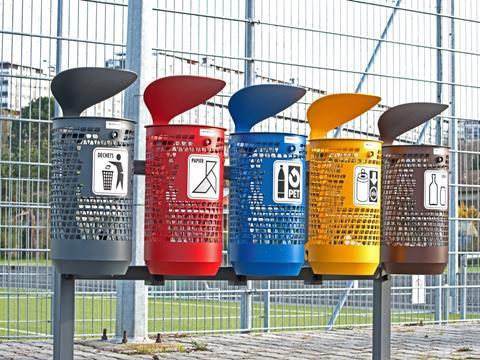
Swiss Recycling says that over 50 organisations from across the value chain have signed a Pact aiming to introduce a Switzerland-wide harmonised, cost-efficient, and consumer-friendly recycling management system for plastic packaging and beverage cartons.
According to Swiss Recycling, the signatories of the ‘Closing cycles for plastic packaging and beverage cartons’ Pact have committed to applying circularity principles and signalled the importance of establishing a circular economy for packaging in Switzerland by 2030.
Patrik Geisselhardt, managing director of Swiss Recycling, comments: “The pact is an important sign that a nationally coordinated solution is coming, and we are pleased that so many organizations are pulling together.”
Swiss Recycling will partner with REDILO GmbH, which provides services for assessing sustainable development, on building a national collection system for plastic packaging and beverage cartons, with the goal of bringing together manufacturers, recyclers, retailers, and consumers.
Dr Melanie Haupt, co-managing director of REDILO, adds: “There are various prerequisites such as design for recycling for a sustainable circular economy. We can only achieve this in cooperation with all players along the value chain.”
According to the group, there is political support for the scheme in Switzerland, especially with regards to the government’s Motion 20.3695, ‘Promoting of the circular economy: Switzerland should recycle more plastic’.
National Councillor Marcel Dobler says: “I am pleased that a broad alliance is committed to more recycling management for plastic and beverage cartons. With this enthusiasm, Motion 20.3695 can be implemented independently by the stakeholders concerned.”
For consumers, the alliance reportedly means that a national collection system for plastic packaging and beverage cartons is currently in development. In the next few years, people in Switzerland will be able to return plastic packaging and beverage cartons for recycling nationally, according to the group.
At present, Swiss Recycling reports that 53% of municipal waste is recycled in Switzerland. The group considers separate collection as the “key to sensible recycling”, but also states that recycling should “not be an end in itself”. Instead, it emphasises the need to design with recycling in mind.
The details of the collection system will now be established by the signatories of the Pact. The group claims it will account for different aspects of sustainability to ensure the system is coordinated and cost- and eco-efficient, as well as usable for consumers.
Existing recycling guidelines include CEFLEX’s Designing for a Circular Economy (D4ACE) initiative, which has united key players from across the flexible packaging value chain in developing a set of guidelines to design packaging with recyclability at the forefront. D4ACE presents a hierarchy of preference for different polyolefin structures and promotes the importance of ensuring a high collection rate for flexibles; it has since been awarded UK Research and Innovation (UKRI) funding to further understand the impact of specific design elements on overall packaging recyclability.
In addition, RecyClass is another cross-industry group working on boosting recycling rates for plastic packaging, with a focus on sorting and traceability in Europe. The group defines a product as recyclable if it can be collected, recycled in a commercially available process, used in the manufacture of new products, and sorted into an aggregated stream. Its testing protocols can be applied to PE and PP flexibles, PET bottles and trays, PP and PS rigids, and HDPE rigids, with specific evaluations for materials.
RecyClass’ guidelines for the recycling of polystyrene – a material apparently not yet widely recycled in Europe – has been deemed an important step in beginning to establish a circular economy for this material. Earlier this year, Styrenics Circular Solutions (SCS) said it would be seeking approval from the European Food Safety Authority (EFSA) for its super-cleaning technology for producing food-contact recycled PS.
As for consumers, interest in recycling initiatives like deposit return schemes appears to be increasing. Research by Tetra Pak suggests that clarity and convenience are key to engaging consumers and thus maintaining collection rates.














No comments yet